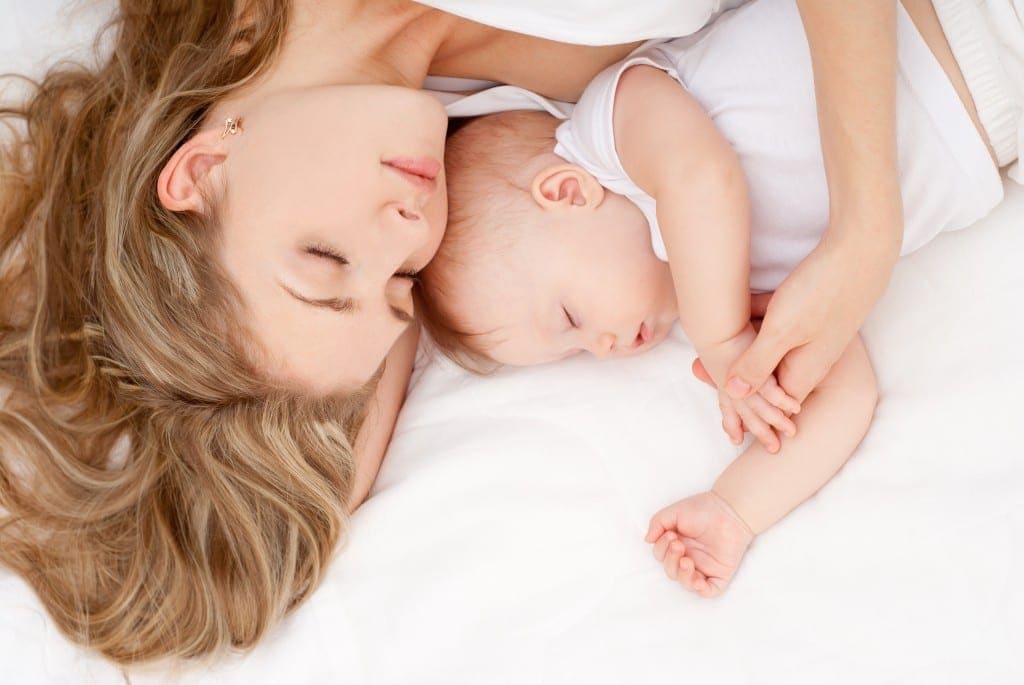Ask any new parent and the majority will tell you about the demands of parenting on their sleep deprived bodies. Whilst lack of sleep to attend to a baby, is a reality, does it have to be that hard? How long should the night-waking last? We talk to The Possums Clinic, experts in baby sleep help, who explain about this demanding time in our lives.

When it comes to babies and sleep it seems like there aren’t a lot of options. You are probably familiar with the advice to teach your baby to self-settle, which is done in a structured way. If that doesn’t seem like the answer to you, or if you’ve tried it and it only seems to make life even harder, the only option left seems to be to accept your baby’s current sleep patterns and your own exhaustion. While a realistic view of baby’s sleep is absolutely beneficial (babies do wake during the night), parents may be happy to learn that there is an effective new, research-based program for healthy parent-baby sleep help.
One of the premises of this new approach is that parent-baby sleep often becomes unnecessarily disrupted. Unnecessary disruptions can be minimised by understanding some little-known and yet scientifically supported facts about sleep. Here is what you need to know about baby sleep help:
Each baby has a different sleep need.
There is remarkable variation in sleep needs and sleeping patterns from baby to baby. So much so, in fact, that comparing your baby to others or aiming for a specific number of hours of sleep is likely to be unhelpful. When the obstacles to healthy sleep have been removed, your baby can be trusted to take the amount of sleep that your baby needs.
Sleep is a natural biological rhythm.
Our sleep patterns, and our baby’s sleep patterns, are biologically regulated. You don’t actually need to teach your baby to sleep. In fact, there are two aspects to this force: your homeostatic sleep pressure and your circadian clock. Baby (and parent) sleep can become very disrupted when these powerful biological forces become out of sync with each other or out of sync with real time.
Stress and anxiety interfere with sleep.
Healthy sleep can be promoted with relaxation and the down-regulation of the sympathetic nervous system. Babies often fall asleep after feeds, and this is completely natural: the hormones of satiety and relaxation allow the baby’s natural biological rhythms to take over and baby drifts off to sleep. Babies also hunger for sensory stimulation and satisfying this drive brings relaxation, too. The best way to meet your baby’s hunger for stimulation is to live a rich and enjoyable life yourself, with baby in tow: social activities, time outside in the fresh air, regular exercise and activities that you enjoy. Note that if your baby feeds very frequently day and night, your baby may be experiencing a feeding rather than a sleeping difficulty and it is important to seek professional support.
Remember, every baby is unique, so experiment with how you can best put these facts into practice in your family.
Where to find baby sleep help
Written by: Assoc Prof (Adj) Pam Douglas, Medical Director, The Possums Clinic
Dr Koa Whittingham, Psychologist and Researcher, The University of Queensland
The Possums Clinic is a team of experienced professionals, offering a wide range of general practice, medical specialist and allied health services. We are also dedicated to the specialised care of families from pregnancy, through the post-birth period, and throughout infancy and childhood if learning, development and behaviour issues arise. We work collaboratively with you to find the best way forward for your unique family. Find out more about their professionals and the programs they run.
This article was published in Issue 18 of our print magazine, October/November 2016.

